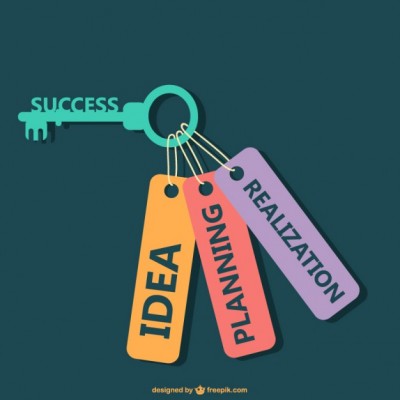If you've been reading this series from its inception, you know that my passion for this subject has emotional roots. Motivated by an unwelcome office change, I sought out information on organizing to make lemonade out of lemons.
It worked.
Not only that, but I also figured out that if I could teach my students these skills while they were still in elementary school, I could teach them about more than organization. I could restore their self-confidence.
When my crazy style names appealed to adult audiences, I realized that grown-ups needed the humor and low-key approach just as much as the kids did -- maybe more. A lifetime of feeling like Plan B in a Type A world takes its toll. Despite studies that correlate disorder with creativity, adults who struggle with organization feel self-conscious and somehow flawed. And in a world where Type A organizers feel justified intruding into a co-worker's space and tidying up, the feeling of being a second-class citizen is intensified.
Not everyone is a Type A organizer. More important, not everyone needs to be. If you can function effectively in your space and you can find what you need when you need it, your organizational system is probably functioning just fine.
Aside from the more tangible aspects of organization, there are some non-tangible things that are important to keep in mind, regardless of your particular style. We all need:
 Designed by Freepik
Designed by Freepik
- A plan that works for us. Just because your mom got up and cleaned the house from top to bottom every Saturday morning, that doesn't mean you have to. Maybe you're a night owl, or an I love to be busy person who cleans in bits and spurts. Maybe you're lucky enough to be able to pay someone to do it for you. Bottom line? If your house gets cleaned, how it gets cleaned isn't important. And if your space is organized, how it's organized isn't important either.
- An appreciation of what works for us. Traditional tools (e.g. binders, file cabinets, pocket folders) don't work for everyone, yet we often equate organization with traditional systems. Chasing after something that doesn't work wastes time and money. Conversely, knowing what works and what doesn't keeps you from getting sucked into expensive systems (usually designed by someone else) and saves you money. Before you buy, take your styles into consideration. Will you really use the item? No matter how nice it looks in the store or in someone else's house, if it doesn't fit your style, leave it where it is and choose something else.
- Patience with ourselves. We all know that perfection is impossible, but it's sometimes hard to give ourselves a break when we feel judged. Organization is a process, and one that can be painfully slow for some of us. The good news is that once you create a system that works for you, it becomes self-sustaining, and you can move on to the next organizational challenge. Some days, it feels as though all we're doing is running from one pile to the next -- and some days, we are. Be patient. Creating systems that work with your style (let alone transfer to family members with other styles) is time-consuming, but well worth it.
Copyright 2016 Lisa Hess
About the Author

Lisa Hess
Transplanted Jersey girl Lisa Lawmaster Hess is the author of a blog compilation, three novels, and three non-fiction books, including the award-winning Know Thyself: The Imperfectionist’s Guide to Sorting Your Stuff. A retired elementary school counselor, Lisa is an adjunct professor of psychology at York College of Pennsylvania. She blogs at The Porch Swing Chronicles, Organizing by STYLE, and here at Catholicmom.com. Read all articles by Lisa Hess.


.png?width=1806&height=731&name=CatholicMom_hcfm_logo1_pos_871c_2728c%20(002).png)
Comments